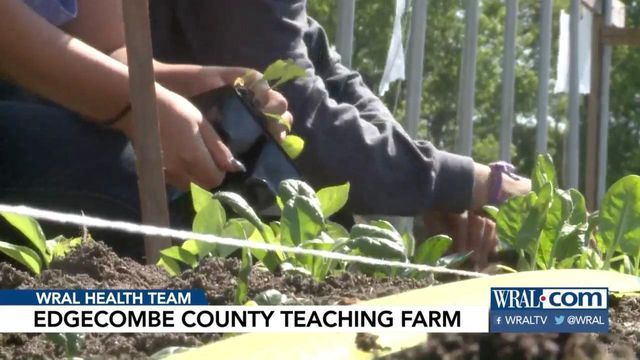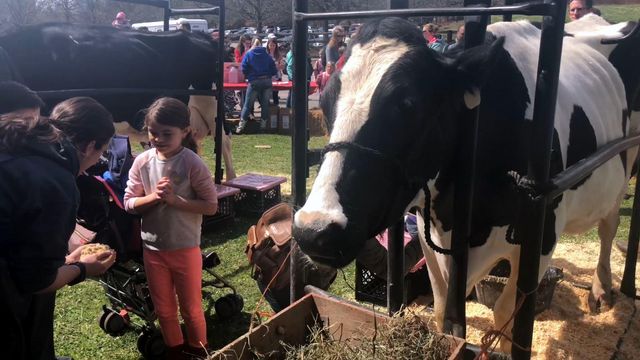Triangle woman brings people together through local food, importance of community agriculture

When reflecting on her career, Anupama Joshi attributes her work to good food and community.
Joshi, who now lives in Cary, grew up in Dehli, India, where she says cuisine brings people together.
"There’s a very strong food culture,” she said. “My mother was the person who brought people into our home with good food, and our table was always full of family and community members.”
Joshi, the executive director and co-founder of the National Farm to School Network, has worked in nutrition and agriculture issues around the United States as well as in Europe and Asia.
The Farm to School initiative aims to raise awareness about the benefits of eating local into schools by connecting students, local farmers and communities to local agriculture and delicious meals.
While Farm to School may mean something different from one school to another, programs include the use of locally-grown products in school lunches along with educational programs and school gardens. The Network advocates for Farm to School organizations and serve as a network for people around the country.
Food and community "have been so influential in how I approach my interactions with people both in my friendships and my professional life,” Joshi said. “Bringing people together and community. There’s a pattern.”
Joshi and fellow local food advocates launched the National Farm to School Network in 2007, when Farm-to-School initiatives were just gaining traction.
The organization has partnered with more than 20,000 people working to make the Farm-to-School model work in schools around the country.
Joshi calls Farm to School a win for children through the development of healthy eating habits and beneficial to farmers and the local economy. Shei has worked with the Food and Agriculture Organization of the United Nations and the Pesticide Action Network.
She has also co-authored the book Food Justice and led the development of “Evaluation for Transformation,” a framework model for farm to school research and evaluation.
After moving to the Triangle because of her husband’s job four years ago, Joshi, who runs the Network remotely, is also now a committee member on the North Carolina Farm to School Coalition.
As a female executive, Joshi said there are more female leaders in the nonprofit sector than in the cooperate space, something she thinks nonprofits benefit from.
“I think women leaders tend to be a lot more collaborative and a lot more patient in terms of looking at outcomes,” she said. “The ability to partner across sectors, the ability to think outside of your own silo is something I think women excel in. Most women are extremely well organized and excellent managers.
“There’s women in business and finance who do really well, but there's something to be said about women leadership in the nonprofit sector because there are so many in the nonprofit space," she said.
Before moving to the United States, Joshi worked an advocate for female farmers in rural India through developing a dairy cooperative.
“In India and many developing countries, and in the U.S. sometimes as well, women are the caretakers of agriculture, and they often don’t get credit for it,” she said.
The concept was around bringing women together so that they can better their lives, better their communities and better their families.”
As far as advice for professional women working in nonprofits, Joshi said it's important to identify one’s passion and let it grow.
“Don’t underestimate yourself, I often did that and doubted myself along the way, and there’s no reason to do that. There’s capability in everything and when you’re put into a situation, you can do it,” she said.
She said people too often discredit themselves before they’ve tried something.
“Be confident and push yourself out there and take the opportunities that come to you,” she said.
Women have a lot of potential, and we’re really only scraping the surface in tapping into that potential. There’s so much more that can happen.”











